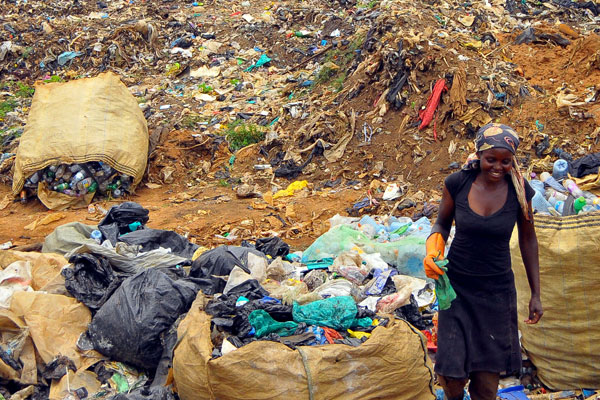Prime
Channel innovation funds to waste recycling in cities

Joan Alobo Acom, Soroti City Woman MP
What you need to know:
...government should tap into the creative landscape of Ugandan individuals and groups to enable them create bags and eco-art from plastics.
President Museveni has in the recent past reiterated his pledge to increase funding for science and technology research. In fact, the President is so obsessed with science that he may bring himself to accept the fixed reality that science is but a way of knowing, and not a body of knowledge.
That epistemological question notwithstanding, the President’s resolve to channel our scanty resources to scientific inquiry is welcome no matter how belated. And since it is rumored that he reads the Daily Monitor’s truth every day before he eats his healthy breakfast, I wish to advice that let him channel a big percentage of innovation resources to fund novel ideas on waste management in the 10 cities that were created in 2020. If, by any chance, one of the presidential advisors picks up this unique suggestion and discusses with Mr Museveni, here is how it will work.
First, challenge all the public science and technology universities in each of the 10 cities in Uganda to design projects and innovative solution for sorting and recycling garbage in their areas. Put in place a grant of, say Shs120 billion for what should be called ‘The Presidential Green Cities, Clean Cities Challenge’. The bottom-line is that Soroti University, Gulu University, Mbarara University, among other science and technology universities, must design creative technologies to deal with the overwhelming mountains of garbage on streets and landfills. Given that nearly 80 percent of the organic waste that our cities generate is of food waste, this means we can generate sufficient compost for urban greening.
Our universities must also borrow technologies that use waste plastic bottles and buveera for paving roads so as to replace the pathetic low-cost sealing of our roads. A British manufacturer, MacRebur, has already paved thousands of miles of roads in the UK and beyond with asphalt that contains waste plastic. Additionally, RUR Green Life social enterprise in Mumbai, India, runs a programme with Tetra Pak India that turns plastic and paper cartons into benches, desks and chairs, which are donated to government schools. Such technologies and their requisite investments are worth investing in. I have no doubt the World Bank, once it comes to terms with our draconian homosexuality laws, can be coaxed to fund such ventures.
Secondly, the government should tap into the creative landscape of Ugandan individuals and groups to enable them create bags and eco-art from plastics. Some of the Parish Development Model funds can be redirected to, specifically, support women and youth in such ventures. Surprisingly, there will be no importation of skills required for this venture since the likes of Aweko, along with Shamim Naluyima and Rachel Mema, through their company, Reform Africa, have been turning plastic waste into waterproof bags since 2018 here in Uganda. In their simple model, a team of women collects plastic bags and bottles from the streets and dumps, which items are washed, dried and processed into a sustainable leather-like material to be made into backpacks, shopping bags and toiletry bags.
The embarrassing truth is that the money allocated for the innumerable skilling hubs under State House alone is more than sufficient to run such eco-friendly initiatives.
Lastly, only once our science and technology universities, and their scientists across this country have risen to the occasion to calm our restless spirits from engaging in extinction rebellion so as to save the pearl of Africa, shall we listen to the President’s broken hallelujah of “leave my scientists alone.” And, only then must Parliament enact tougher laws on ecocide.
Ms Joan Acom Alobo is the Woman Member of Parliament for Soroti City. [email protected]




